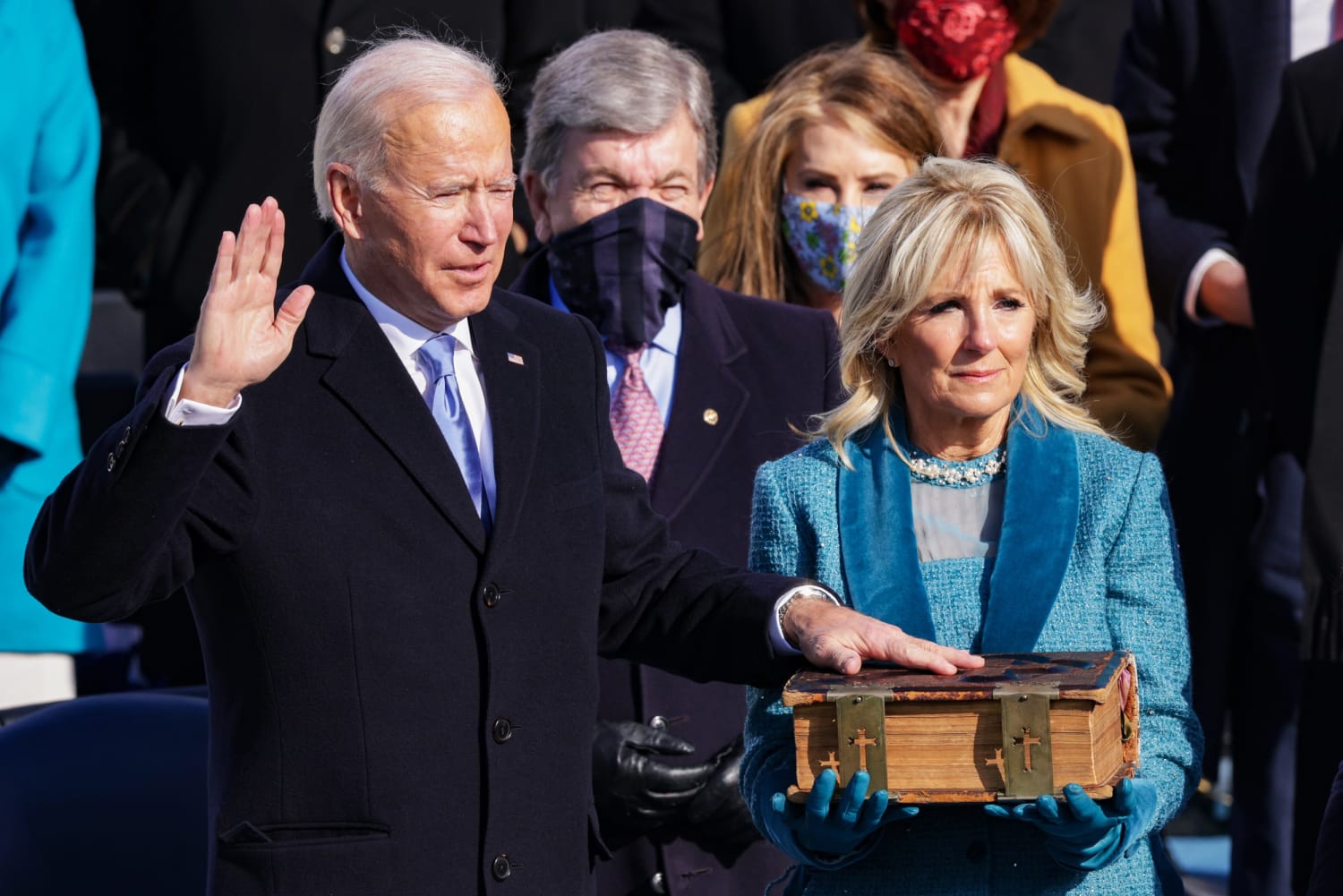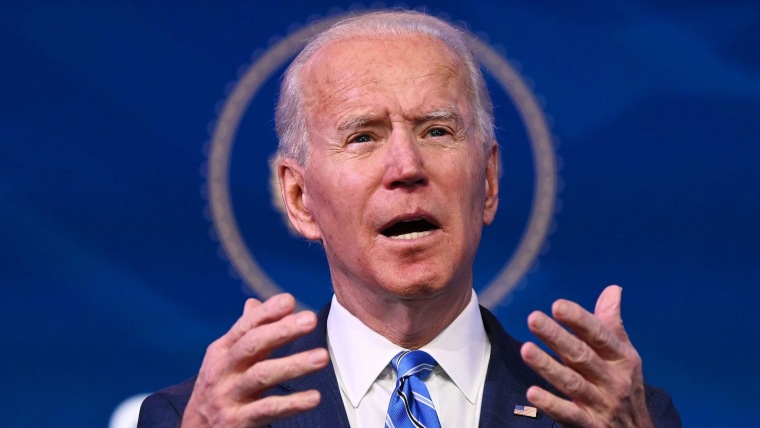Business leaders are lining up to welcome President Joe Biden and his administration’s focus on a federal role in beating the pandemic, all while angling for consideration in the new economic roadmap.
While Donald Trump’s presidency was billed as aggressively pro-business, with conservative policies that included corporate tax cuts, deregulation and low interest rates, his focus on short-term results likely opened the door for the coronavirus to infect the country more fully, forcing businesses to temporarily and permanently shut down, lay off workers and keep fearful consumers home.
But tax cuts and open businesses aren’t enough to induce consumers to risk their lives to shop and eat — and in a consumer-driven economy, that’s a disaster.
Biden has proposed a $1.9 trillion dollar aid package that includes federal assistance with vaccine distribution, new stimulus checks for struggling families, and additional funding for small-business and payroll loans targeted at the communities that need them most.
Taking a breath after four years of seesawing policies, business leaders are offering the new presidency their praise and direction.
Walmart CEO Doug McMillon, chair of the Business Roundtable — which represents some of the most powerful companies in America, including Apple, Starbucks and Coca-Cola — emphasized “opportunity” and “optimism” for the future Tuesday during a conference call with reporters.
The top priority is to “turn the corner on this pandemic by strengthening the public health response, aided by the deployment of effective vaccines, “ McMillon said. “The second priority executed in parallel has to be to facilitate the safest and most rapid economic recovery possible.”
The influential business lobbying group said it advocates for the next congressional rescue package to include investments in infrastructure and worker training, a “modernized” immigration system, and progress on issues like climate change. All that corresponds with the new administration’s priorities.
But the group balked at accepting a $15 federal minimum wage, saying “regional differences” should be considered.
The fossil fuel industry faces pressures from low gas prices and the new administration’s focus on promoting clean energy solutions.
“We congratulate President Biden and will work with the administration and members of Congress to support market-based policies to promote economic recovery, affordable energy development and management of environmental issues, including the important issue of climate change,” ExxonMobil spokesperson Ashley Alemayehu told NBC News in an email.
”Effective energy policy can help economic recovery in the United States through the creation of millions of jobs and trillions in government revenues,” she wrote.
Amazon, whose CEO Jeff Bezos was a favorite Trump foil and target, sent a letter to the Biden administration after the new president was sworn in, pledging the company will assist with the goal of vaccinating 100 million Americans within the first 100 days and said it had agreements in place with third-party providers to provide vaccinations at Amazon locations.
“We are prepared to move quickly once vaccines are available,” wrote Dave Clark, the CEO of Amazon’s consumer business, while also asking for consideration for its own front-line workers to receive doses.
Last Friday the incoming CEO of CVS Health, Karen Lynch, reacted to Biden’s vaccine plan, saying in a statement, “We agree with President-elect Biden that pharmacies will play a critical role in the next phase of the COVID-19 vaccine rollout and appreciate his leadership in the pandemic response.”
“Business executives are looking to the Biden administration to restore calm and provide steady leadership. These essential attributes have been lacking these last four years.”
After years of rule by tweet, business leaders welcome a chance to return to an established way of governing and doing business that allows them to engage in strategic, long-term planning, Mike Posner, director of the NYU Stern Center for Business and Human Rights, said in an email.
“Business executives want stability and predictability. They will look to the Biden administration to restore calm, and provide steady leadership, at home and abroad. These essential attributes of good government have been lacking these last four years,” he said.
“The first order of business will be to steer the country toward recovery from Covid-19 and address the accompanying economic crisis,” he said, noting that the $1.9 trillion recovery package Biden outlined last week is “a promising first step.”
Over 30 companies and lobbying groups contributed to Biden’s Presidential Inaugural Committee, according to a list released by the new administration, one of the first public signs of which businesses might be hoping to get an early foot in the door with the new government. The committee accepted donations up to $500,000 from individuals and up to $1 million from companies, but banned donations from fossil fuel companies and registered lobbyists.
The list of corporate donors included several bold-faced names from the tech sector: Amazon, Google, Microsoft, Qualcomm, Uber, Verizon and Yelp. Charter Communications and Comcast, which owns NBCUniversal, the parent organization of NBC News, also contributed.
Unions such as the American Federation of Teachers and the United Food and Commercial Workers International Union made donations, along with aviation and travel industry companies, including Boeing, Enterprise and United Airlines.
“Making a large contribution to an inaugural committee is a way to try to curry access and influence with a new administration,” Michael Beckel, research director for Issue One, a nonprofit bipartisan campaign finance reform group, said in an email.
“Corporations, labor unions, and other special interests want access and influence with policymakers so they can make their voices heard as the government debates new rules and regulations,” he wrote. “Making a large contribution to an inaugural committee is a good way to gain entrée to VIP events and access to administration officials that many others don’t have.”
Trump’s inaugural committee had drawn a record $107 million in corporate donations. A suit later filed by Washington, D.C., Attorney General Karl Racine alleged misuse of funds and illegal overpayments to Trump’s Washington hotel.
Tech companies were quick to chime in on the issue of changing immigration policies. They have suffered from Trump’s stance on immigration, including the curtailment of H-1B visas needed to hire skilled foreign workers and, along with the pandemic and travel restrictions, discouraged foreign students, the next bumper crop of potential employees, from attending U.S. schools.
“We applaud @POTUS’s quick action on COVID relief, the Paris Climate Accord, and immigration reform,” Alphabet and Google CEO Sundar Pichai tweeted Wednesday. “Google has supported action on these important issues & we look forward to working with the new administration to help the US recover from the pandemic + grow our economy.”
Microsoft President Brad Smith also tweeted his congratulations to the new president on updating immigration policy, “welcoming immigrants who contribute to our COVID-19 response and economic growth” and pledging to “work with policymakers and partners” as the country transitions to “a net zero carbon economy.”
Reached for comment, Eric Hausman, a spokesperson for UnitedHealth Group, one of the nation’s largest health insurers, said in an email that, “we believe in the importance of public-private partnerships in achieving our goals of increasing coverage, improving affordability, enhancing the health care experience, and driving better outcomes.”
During an earnings call last week, Jamie Dimon, the outspoken and influential CEO of JPMorgan Chase, said, “We want the new president to be successful,” and said the bank would work with the “new set of regulators.”
“We want to be more green, we want to help the disadvantaged people,” Dimon said.
Spokespersons for trade groups from industries especially hard hit by the pandemic were vocal in their support of the new administration, while offering some self-interested advice on where it should direct its efforts.
The travel industry praised Biden’s plan for a federal role in vaccine distribution, with Roger Dow, CEO and president of the U.S. Travel Association, a Washington, D.C.-based organization representing the industry, saying acceleration of the rollout was key to “getting travel back to normal.” It was also in favor of more loans to struggling small businesses, which include travel operations.
The restaurant industry welcomed the incoming administration’s focus on defeating the pandemic and supporting family and small businesses, but suggested Biden’s proposal to raise the federal minimum wage to $15 would put some people out of business.
“A nationwide increase in the minimum wage will create insurmountable costs for many operators in states where restaurant jobs are most needed for recovery,” the National Restaurant Association said in a statement. “When it comes to the restaurant and food service industry, the Biden plan may cause more harm than good.”
For their part, manufacturers hailed the blue-collar friendly Biden.
“This is a new day for America,” National Association of Manufacturers President and CEO Jay Timmons said in a statement following Wednesday’s inauguration.
Source: | This article originally belongs to Nbcnews.com










